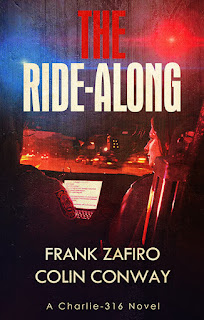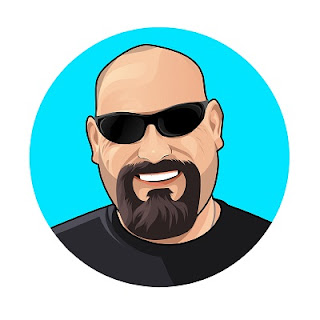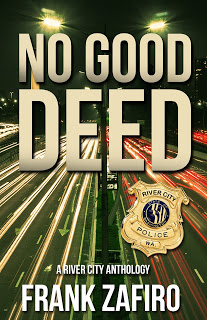The Inside Story of The Ride-Along
The Ride-Along, the fifth book in the Charlie-316 series, is now available! What’s it about?
The Tyler Garrett scandal rocked the Spokane Police Department two years ago. Now, a consent decree governs the agency with Washington D.C. directing its reform. It’s a tumultuous time in the city, and public outcry over local and national events is high.
Change is in the air.
Officer Lee Salter is a third-generation cop who bleeds blue. Amid the departmental chaos, he does the only thing he can—be a good officer. That means showing up for every shift, responding to calls for service, and always doing the right thing. All the while, the Department of Justice and its local supporters hope to catch another officer in its net of reform.
Salter refuses to be that officer.
Melody Weaver is a teacher and activist who believes in a better way. Despite her demanding profession, she dedicates herself to the cause of reshaping policing in her city so that the terrible events—both local and national—can stop. To understand what needs to change, she needs to see the reality of the job up close.
That means a ride-along on the graveyard shift.
One night.
Two people.
And a nation’s problems.
If you’re a fan of the Charlie-316 series, you’ll notice right away that this is a little different from books one through four. The Tyler Garrett arc ended in Code Four, but the stories in the Charlie-316 universe go on. This is the first of those stories.
It differs from the first four in another way, as well. See, Colin Conway came up with the initial idea for the first book. He brought me in and together we fleshed out the details. The story grew until it was clear it wouldn’t be completed in just a single book. Working on these first four titles of the series has been one of the most satisfying writing experiences of my career. I think the quality of the result speaks to that.
The Ride-Along had a different path, though. It began as a standalone solo work of mine. The idea resulted from some of the frustration I’d been experiencing over the polarization of our nation, particularly regarding police-related issues. Having been in law enforcement, I recognized how there was much the public didn’t know or understand about the inner workings of the profession. That lack of understanding tended to result in negative attributions.
However, I retired in 2013. For four years, I taught police leadership all over the US and Canada, so I interacted with a wide swath of police professionals of all stripes during that time. This experience gave me some perspective on my own agency, and helped me see where we had truly excelled and where we could have done much better.
This thought process extended to all of law enforcment once I hung up my PowerPoint clicker and retired for good to write full time. I began to see the mistakes we’d made as a profession. This included philosophical questions of mission or vision, to how we saw our role, to the simplest human error of all: poor communication.
I felt like I understood both sides of this equation better. I saw valid, important points from both perspectives. And while I think my own bias will always rest with a leaning toward law enforcement—how could it not after I spent so many years around so many dedicated, talented, and truly excellent individuals?—I became certain that the answer, the solution, lay in the middle ground.
Getting there is no small feat. It didn’t seem like anyone was listening to anyone else. Everyone was chanting slogans, creating sound bites, and even if there was discourse, it was rife with people simply yelling at each other. The most you could hope for was that someone would be polite enough to wait for their turn to talk.
No one was listening.
So I wrote a story that pretty much forced two people to listen to each other.
The idea began as a short story. I shared it with my wife and sister-in-law around a dead campfire one morning up at the lake. Spurred by that conversation, I continued to develop it. Very quickly, it became clear this was too big to be a short story. At least, not if I wanted to do it justice. So I switched gears and made it a novel.
For about a third of the book, I wrote it in an unnamed city. National events drove local outcry and calls for reform. But the story felt unmoored and the characters too detached from the events and ideas they were discussing. I realized I needed to set it in a real place.
Since Spokane is almost always my default, I went there first. But I couldn’t set it in my fictional version, River City. Those novels were only up to 2004, and I needed this book to be contemporary. I suppose I could have done it as a standalone that takes place later in the timeline—I’d done it before—but that would involve too many spoilers (or too much tap dancing to avoid them).
I considered the version of Spokane from my SpoCompton novels next. This universe also contains my Jack McCrae mysteries (#2 is coming July 2022), Sandy Banks Thrillers, and Stanley Melvin PI Stories. The problem there was that SpoCompton is mostly told from the “other” side of the badge. Cops aren’t all dirty in this universe but they are viewed as antagonists by most. Putting The Ride-Along in that universe would send an unintentional message that is anti-police. It would destroy the attempt I was making at balance.
The idea of adding another version of Spokane to my work was less than appealing. So I started to consider other cities.
Then I realized there was one version sitting right in front of me the entire time—the Charlie-316 universe. It was a perfect fit. The time was contemporary. I knew the locality. Most importantly, there was already a canon established, and it was one that included local police issues that would drive the discussion between Lee and Melody in a much more personal manner.
I approached Colin with the idea, and he gave it a thumbs up. I finished the first draft by myself, which was a departure from our usual process. But once I had a finished draft, we reverted to our tried-and-true method of editing. Colin brought a new set of eyes to the manuscript and an additional viewpoint that helped balance out the two characters even further. As I said before, I don’t think I could get away from a law enforcement bias but I wanted to try to get as close to fifty-fifty as we could. Colin definitely helped with that. He also excised some behaviors by Salter that would have been ultimately unsympathetic.
We edited like we always do — hardcore, ruthless volleys back and forth. The result is, as usual, better than I could have accomplished on my own. And while this book is different than its predecessors in the series, I think the readers will enjoy this new direction of mostly standalone works set in the Charlie-316 univese.
What do I hope for this book? That people read it, for one. But more than that, I hope that regardless of where the reader sits on the issues explored in the story, s/he comes away with a few different reactions. Seeing their own opinion, or something close to it, expressed, and nodding in agreeement, glad to see it get out there. Hearing another take and actually taking the time to consider it. And overall, perhaps listening just a little more.
And, of course, digging on another cool crime story.
The next Charlie-316 will be completely different but I am proud of this installment. On a personal level, it was cathartic to get my competing thoughts and emotions onto the page. A little bit of the heaviness, the frustration I have felt for several years now has lifted with the publication of this book. That, at the very least, has made it worth effort.
Source: All The Madness In My Soul




